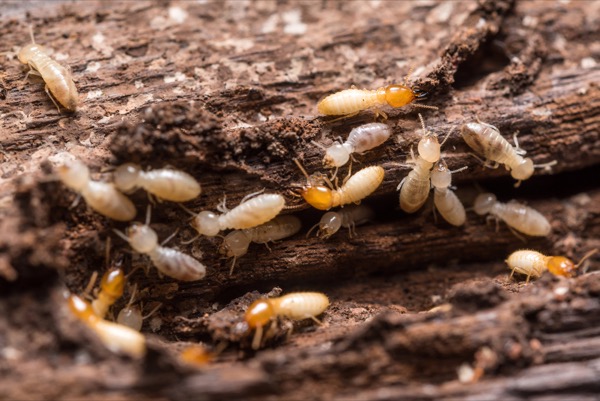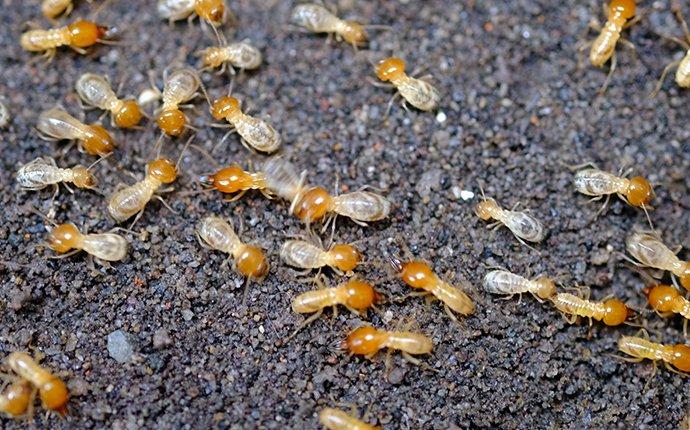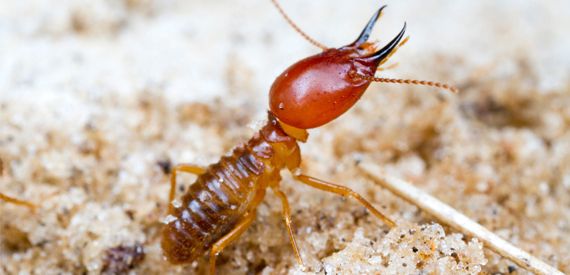Top-Rated Termite Control Services: Guarantee Long-Term Security for Your Residential or commercial property
Top-Rated Termite Control Services: Guarantee Long-Term Security for Your Residential or commercial property
Blog Article
Environmental Effect of Bug Control: Balancing Efficiency With Sustainability
The ecological impact of insect control is a vital issue that needs a delicate equilibrium in between attaining efficiency in managing parasites and making certain sustainability of our communities. As we strive to safeguard our crops, homes, and health from the threats postured by bugs, the methods we use can accidentally harm the environment. From the use of unsafe chemicals that permeate right into our soil and water to the unintended consequences on non-target species, the consequences of conventional pest control practices are significant. There are emerging approaches that supply hope for a more lasting technique to pest monitoring. These remedies not just purpose to attend to the instant parasite issues yet also think about the long-lasting health and wellness of our planet.
Damaging Chemicals in Insect Control
The utilization of harmful chemicals in bug control poses substantial environmental and wellness risks that require mindful consideration and reduction techniques. Pesticides, chemicals, and herbicides are generally used to eradicate bugs, however their prevalent application can lead to unintended effects. These chemicals can contaminate dirt, water sources, and the air, affecting not just the targeted bugs however also helpful bugs, wildlife, and humans.

To resolve these risks, integrated parasite monitoring (IPM) strategies are being advertised as a much more sustainable alternative. IPM involves a mix of approaches such as organic control, environment control, and the targeted use chemicals as a last hope (ant control monroe nc). By embracing an all natural strategy to pest control, we can lessen the environmental and health impacts related to hazardous chemicals while effectively managing pest populations
Influence On Non-Target Types
Thinking about the unintended consequences of parasite control approaches, the effect on non-target species is a vital element that requires detailed assessment. While parasite control steps aim to target details insects, other microorganisms in the ecosystem might be accidentally influenced. Non-target species, consisting of useful bugs, birds, creatures, and even plants, can experience indirect or straight damage from chemical applications or organic control methods.
Pesticides developed to battle a particular insect pest might damage pollinators like bees or natural killers such as ladybugs. Organic control agents, if not species-specific, can position dangers to unintended targets, interfering with the eco-friendly balance.
To alleviate the effect on non-target types, integrated insect administration (IPM) methods that highlight an all natural technique to pest control are recommended. These techniques focus on using environmentally pleasant practices, lessening harm to useful microorganisms while successfully taking care of pest populations. Conducting complete risk analyses and checking the outcomes of parasite control efforts are crucial actions in safeguarding non-target species and promoting overall ecological community health.
Soil and Water Contamination
Unexpected ecological effects of parasite control approaches extend beyond affecting non-target types, with considerable ramifications for dirt and water contamination. Chemicals, herbicides, and chemical plant foods utilized in bug control can seep right into the dirt and infect groundwater, posing a threat to both terrestrial and marine ecosystems. Dirt contamination can disrupt the equilibrium of microorganisms important for vitamins and mineral biking and plant development, causing decreased dirt fertility and productivity. In addition, these chemicals can continue the setting for extended periods, gathering in the soil and possibly getting in the food chain.
Water contamination is an additional crucial problem connected with pest control practices. Overflow from agricultural areas treated with chemicals can bring these chemicals right into close-by water bodies, affecting marine organisms and water high quality. Impurities in water resources can have far-ranging consequences, influencing not just aquatic life but additionally human wellness via the intake of infected water or water microorganisms. To alleviate soil and water contamination from insect control activities, integrated bug administration approaches that focus on sustainability and minimize chemical inputs are vital.
Air Air Pollution From Pesticide Use
Exposure to air-borne pesticides throughout farming applications presents a significant problem for air contamination control procedures. Furthermore, chemical drift, where chemicals are lugged by the wind to unexpected locations, can lead to the contamination of close-by ecological communities and water bodies.

Methods for Sustainable Bug Control
In the realm of farming methods, carrying out sustainable parasite control strategies is critical for preserving eco-friendly equilibrium and protecting plant returns. Lasting insect control highlights the usage of eco friendly methods to handle parasite populations efficiently while lessening injury to non-target microorganisms and ecosystems. Integrated Parasite Management (IPM) is a widely embraced strategy that combines biological, social, physical, and chemical control methods to attain long-term insect administration options.
Plant turning and diversity are additionally efficient methods to interfere with pest life cycles and produce much less favorable problems for insects to grow. Eventually, by integrating these lasting parasite control methods, farmers can achieve a balance in between pest management performance and environmental stewardship.
Conclusion
In verdict, the environmental influence of bug control approaches need to be carefully considered to stabilize effectiveness with sustainability. Hazardous chemicals used in parasite control can lead to dirt and water contamination, air pollution, and injury non-target types - termite control. It is vital to implement lasting pest control approaches to reduce these negative results on the setting and promote a much healthier ecosystem for future generations
By adopting an all natural approach to pest control, we can lessen the environmental and health and wellness effects associated with harmful chemicals while properly taking care of pest populations.

To minimize the air pollution created by pesticide use, it is crucial to embrace incorporated insect monitoring strategies that focus on the usage of non-chemical insect control techniques, such as plant rotation, natural killers, and resistant plant varieties. Lasting pest control stresses the use of eco friendly approaches to handle insect populaces effectively while reducing damage to non-target microorganisms and ecosystems. Integrated Bug Monitoring (IPM) is a widely adopted method that integrates organic, social, physical, and chemical control methods to accomplish lasting parasite management services.
Report this page